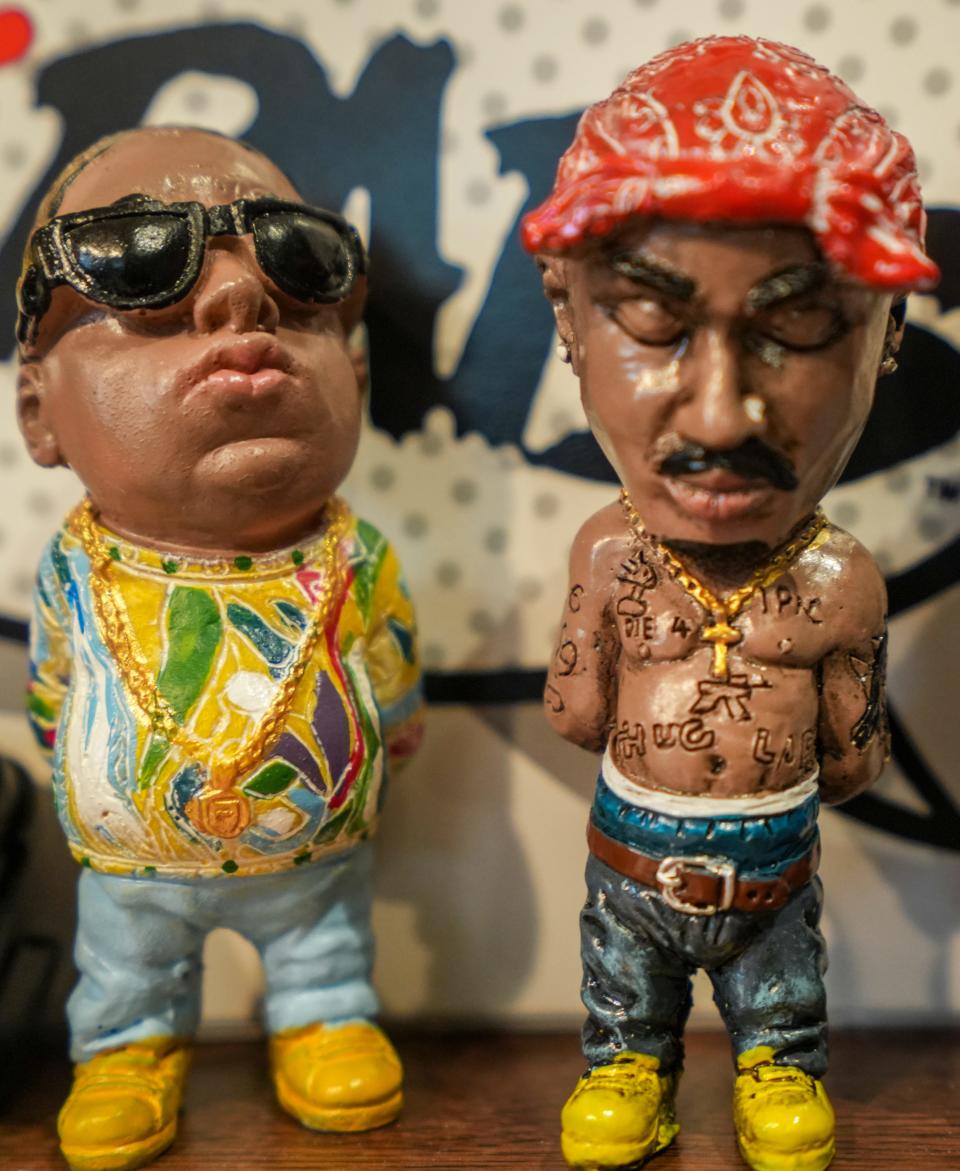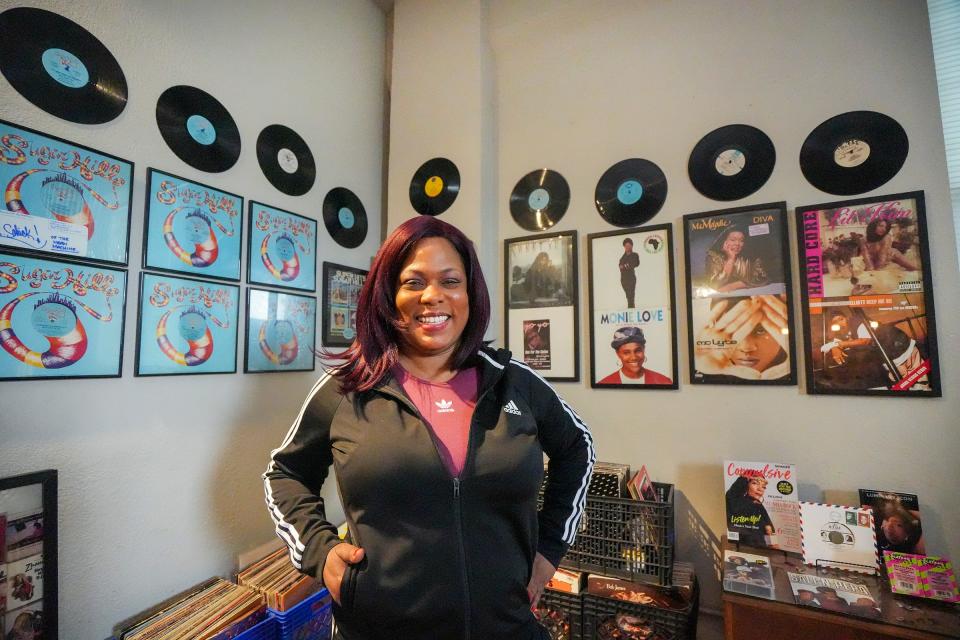Antonia's 365 Hip Hop Museum in Milwaukee, with thousands of records and artifacts, promotes peace and positive messages
- Oops!Something went wrong.Please try again later.
- Oops!Something went wrong.Please try again later.
Antonia Anderson's apartment walls are lined with albums from Boogie Down Productions and Grandmaster Flash. Banners for Public Enemy and Death Row Records fill spaces between records.
She even displays dolls of such hip-hop and related artists as Tupac Shakur, Whitney Houston and Kendrick Lamar.
She has thousands of records and hip-hop artifacts in her home near North 22nd Street and West Fond Du Lac Avenue. And they're not just for her to enjoy — they are for the community.
Anderson's hip-hop collection, which she has named Antonia's 365 Hip Hop Museum, might be one of the largest hip-hop collections in Wisconsin. She is hoping to share it to inspire others with hip-hop.
"A lot of people in the community have come in and really enjoy seeing what I have here to come back to when they were a certain age, a certain time, a certain place," Anderson said. "I know they have a hip-hop museum in Washington, D.C., and they are building another one in New York. And to have one in Wisconsin, I think that’s fabulous."

She alternates displays with sets of records, like one that features Sylvia Robinson, who was a singer-songwriter ("Pillow Talk") and a record producer.
Robinson went on to create Sugar Hill Records with her husband and the group Sugarhill Gang, which made the first commercially successful rap record ("Rapper's Delight"). About a dozen of that group's records are shown in Anderson's collection as well.
"They're special to me because they started off records in hip-hop, as far as I'm concerned," Anderson said.
Hip-hop to help Milwaukee youth
Anderson mainly collects records from before 2000, during a time that she felt hip-hop had more messaging around stopping violence and drug use.
A huge influence for her is KRS-One, who rapped individually and was one-third of Boogie Down Productions with rappers D-Nice and Scott La Rock.

After Scott La Rock was killed by gun violence, KRS-One went on to start the Stop the Violence Movement, which was inspirational for Anderson, who had witnessed violence growing up.
"It was encouraging, hearing artists talk not just about the need for artists who were violent against each other to stop, but to encourage the youth to stop the violence as well," Anderson said. "That's why it stuck with me."
Hip-hop helped Anderson get her life back on track after dropping out of high school and dealing with drug addiction. Now, the grandmother and Milwaukee Public Schools after-school adviser hopes she can use her collection to inspire students today.
"I dropped out of the high school in the ninth grade, and I know how it is to come in when you have something going on in the family and you can't concentrate," Anderson said. "Hip-hop helps with that. It helps with critical thinking, writing, and letting kids express themselves."
When students come to visit Anderson's museum, she shows them the positive messaging in hip-hop, and coaches them on how to write lyrics about difficulties in their lives.
She has a specific record player that she lets children use, and shares hip-hop books that encourage kids to stay in school.
Adult visitors reminisce about the historic records that Anderson collects ranging from Marvin Gaye to Salt-N-Pepa.
And the collection lets Anderson get nostalgic as well. She was inspired to collect them after growing up listening to records with her uncles in Nashville as a kid.
"They played Reel 2 Real, and had a record players and cassettes. We listened to albums and had a good time," Anderson said. "Most of them have gone on so that’s why I try to bring it out, because nothing brings back a good memory of your family when they're not here to remember what they shared with you when they were here."
Anderson hopes to get a permanent space for her collection, and have a mobile collection so that she can spread positive hop-hop music around the community even more. She is in the process of making the museum a nonprofit entity.
People who want to view the collection can email Anderson at antoniaanderson44@gmail.com.
Jordyn Noennig covers Wisconsin culture and lifestyle. Follow her on Instagram @JordynTaylor_n. Find her on Twitter @JordynTNoennig. Call her at 262-446-6601 or email Jordyn.Noennig@jrn.com.
Our subscribers make this reporting possible. Please consider supporting local journalism by subscribing to the Journal Sentinel at jsonline.com/deal.
DOWNLOAD THE APP: Get the latest news, sports and more
This article originally appeared on Milwaukee Journal Sentinel: Milwaukee hip-hop museum in this woman's home has thousands of records

